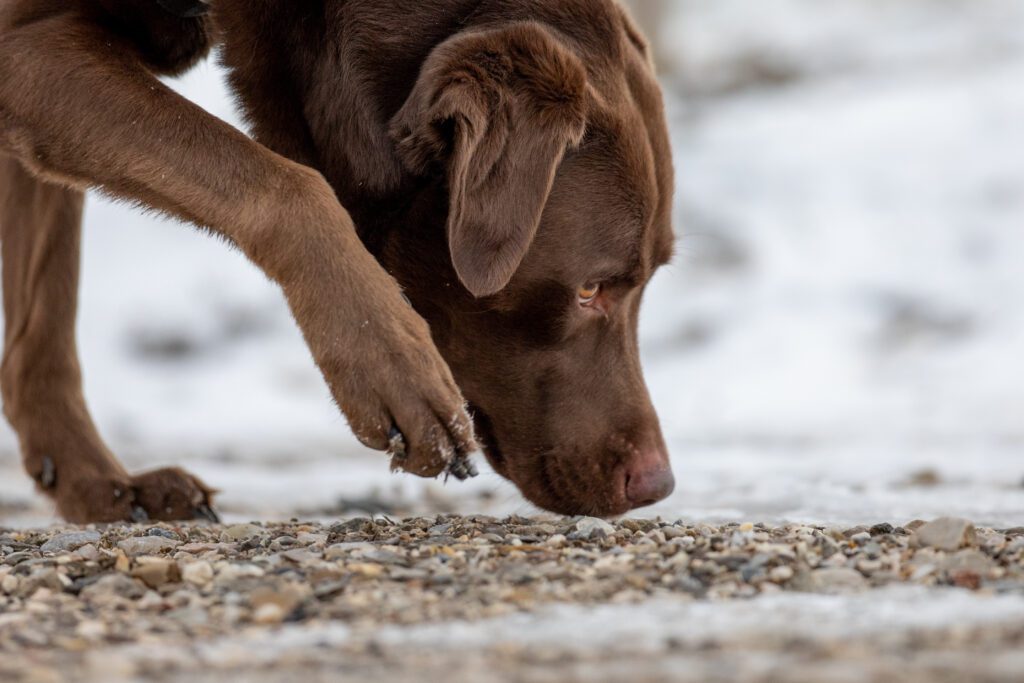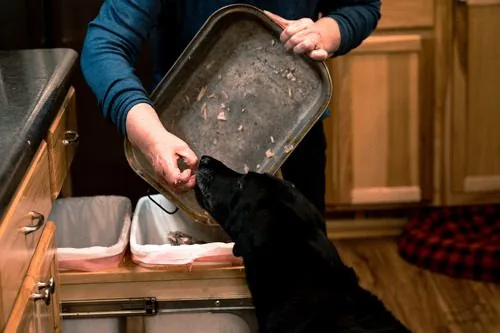Antifreeze poisoning in dogs is a significant concern all pet owners should be aware of. Antifreeze, often used in vehicle maintenance, contains ethylene glycol, a compound highly toxic to dogs. Its sweet taste can mistakenly attract dogs, leading to potentially fatal consequences. At Birch Lake Animal Hospital in White Bear Lake, MN, we are committed to educating you about this serious issue and providing timely care when needed.
If you suspect your dog has ingested antifreeze, contact us without delay at (651) 426-2246.

Identifying Antifreeze Poisoning in Dogs: Symptoms and Stages
Recognizing the stages and symptoms of antifreeze poisoning can potentially save a dog’s life. Here are the symptoms most often seen in pets with antifreeze poisoning.
Stage 1: Early Signs
Lethargy: One of the first signs of antifreeze poisoning is a notable decrease in energy and responsiveness.
Increased Thirst and Urination: A sudden and unusual increase in both could be an early warning.
Loss of Coordination: Watch for signs of dizziness or unsteadiness, which may progress to seizures.
Vomiting: This common symptom can lead to dangerous levels of dehydration.
Stage 2: Escalating Symptoms
Dehydration: Persistent vomiting and urination can rapidly lead to dehydration.
Elevated Heart Rate: A rapid heart rate can be a sign of the body’s distress as it battles the toxin.
Rapid Breathing: An elevated heart rate is accompanied by difficulty breathing/excessive panting.
Temporary Symptom Improvement: Approximately 24 hours post-ingestion, there might be a deceptive easing of symptoms. This is actually a critical time; do not mistake the lessening of symptoms for recovery.
Stage 3: Critical Symptoms
Kidney Pain: Swelling in the kidneys due to toxicity can cause severe pain.
Lack of Urine Production: Kidney failure can prevent normal functions like urine production.
Seizures, Coma, and Death Risk: The most severe stage can lead to life-threatening conditions.
Immediate veterinary care is essential. Even a brief delay can significantly impact the chances of recovery.
Proactive Measures to Prevent Antifreeze Poisoning in Dogs
Preventive steps are vital to keeping your pet safe. These include:
- Safe storage: Store antifreeze out of reach and in childproof containers.
- Prompt spill management: Clean up spills immediately to prevent accidental ingestion.
- Regular vehicle inspections: Check your vehicles for any antifreeze leaks.
- Choose pet-safe antifreeze: Try to find products that are less toxic to pets.
- Educate your family: Ensure everyone in your household is aware of the risks of antifreeze.
- Supervise your dog: Keep a close eye on your dog in areas where antifreeze is used or stored.
Intervention and Treatment at Birch Lake Animal Hospital
If you suspect antifreeze poisoning, contact Birch Lake Animal Hospital immediately. Treatment typically involves:
- Immediate medical assessment: Our veterinary team will conduct a thorough examination.
- Diagnostic tests: Blood and urine tests can confirm antifreeze poisoning.
- Prompt treatment: Treatment usually includes intravenous (IV) fluids, medications to prevent absorption of the toxin, and supportive care for kidney function.
- Monitoring and support: Close monitoring and supportive care are essential for recovery.
Remember, the sooner your pet is treated, the better their chances of recovery!
Distinguishing Antifreeze Poisoning from Other Conditions
The symptoms of antifreeze poisoning in dogs can be similar to other health issues, making a timely and accurate diagnosis critical. If your dog shows any signs of illness, particularly after potential exposure to antifreeze, seek veterinary attention right away. At Birch Lake Animal Hospital, our experienced team is equipped to find an accurate diagnosis and provide the necessary supportive care to help your companion recover as fully as possible.
Not Sure If It’s Antifreeze Poisoning? Get In Touch Anyway
In the case of antifreeze poisoning, immediate medical attention is critical. Even if you’re unsure whether your pet actually ingested antifreeze, err on the side of caution and seek immediate guidance from your veterinarian. We are more than happy to answer your questions and put your mind at ease! Your prompt action can save your beloved pet’s life. For any questions or concerns, don’t hesitate to contact Birch Lake Animal Hospital at (651) 426-2246. We’re here to provide the care and support you and your pet need.
Recent Posts
About Birch Lake Animal Hospital
The staff at Birch Lake Animal Hospital seeks to provide the best possible medical care for our highly-valued patients and clients.





